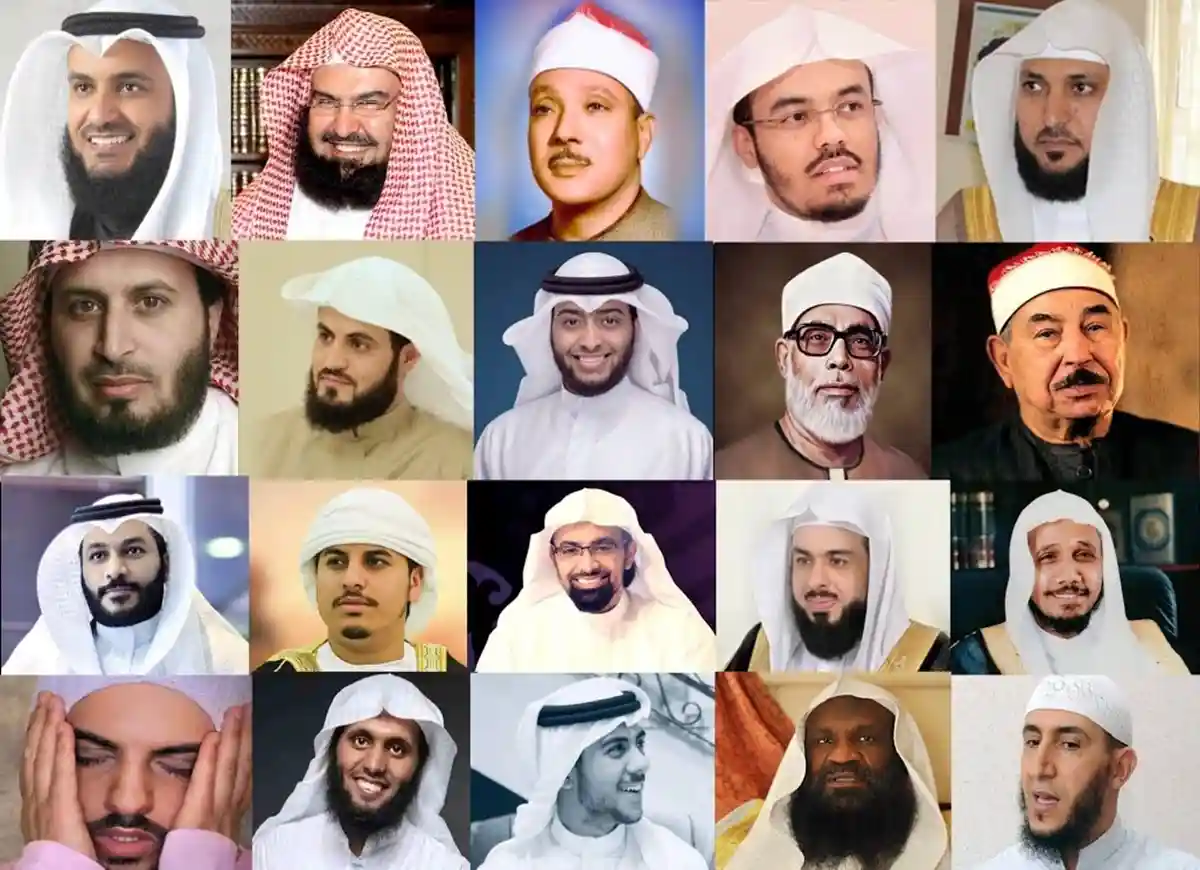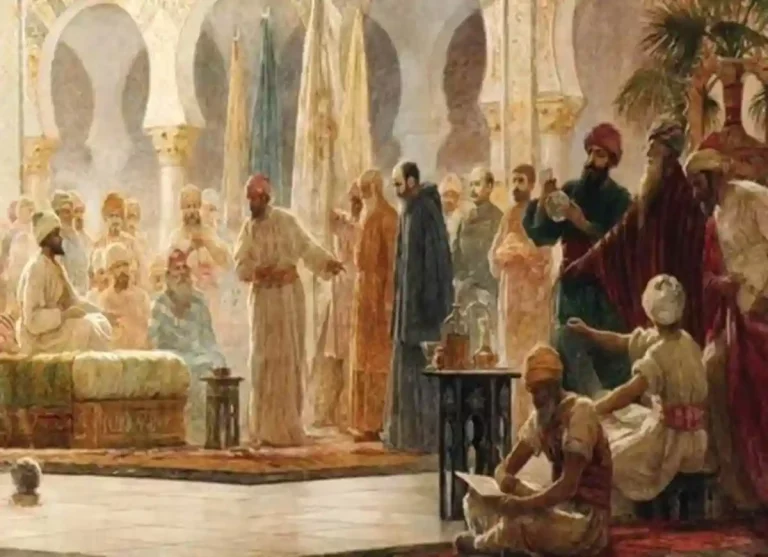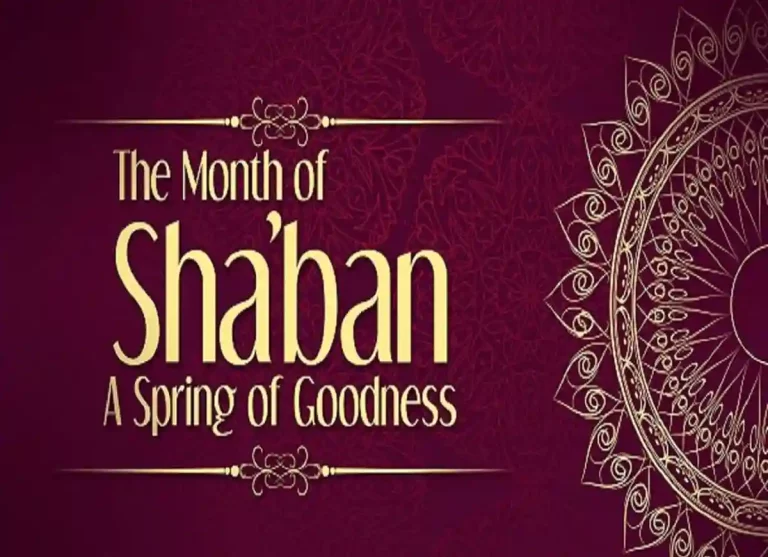Best Quran Recitation in The World – The Quran, considered the holy book of Islam, holds a profound significance for Muslims worldwide. It is believed to be the literal word of God as revealed to the Prophet Muhammad through the angel Gabriel.
The recitation of the Quran, known as “Quranic recitation” or “Qirat,” is an art form that has been passed down through generations, captivating listeners with its melodious and rhythmic tones.
Among the various recitations of the Quran, there are exceptional individuals who have mastered the art to a remarkable degree, earning the distinction of delivering the best Quran recitations.
These reciters possess a deep understanding of the Arabic language, the intricate rules of Tajweed (the proper pronunciation and intonation of the Quranic text), and a strong spiritual connection to the divine message contained within the verses.
The best Quran recitations are characterised by their ability to move hearts, evoke profound emotions, and transport listeners into a state of spiritual contemplation.
The reciters employ various techniques, such as modulation of voice, precise articulation, and appropriate pacing, to enhance the impact of the recitation and effectively convey the divine message.
The beauty of the best Quran recitations lies not only in the skillful mastery of the technical aspects but also in the sincerity and devotion with which they approach their task. These reciters recognize the weight of the words they recite and the responsibility they bear in conveying the message of God to others.
Throughout history, numerous reciters have left an indelible mark on the world with their exceptional Quranic recitations. Their performances have garnered immense admiration and reverence from people of different cultures and languages, transcending borders and uniting believers in their appreciation of the divine art.
In an age of technological advancement, the best Quran recitations are easily accessible to a global audience through various platforms, including recordings, online videos, and mobile applications.
This accessibility allows individuals from diverse backgrounds to experience the beauty and power of the Quranic recitation, fostering a deeper connection to the divine words and inspiring spiritual growth.
Whether listened to for personal reflection, during communal prayers, or as a source of solace and tranquility, the best Quran recitations continue to touch the hearts of millions, reminding them of the profound wisdom, guidance, and solace found within the pages of the Quran.
Suggested Read:
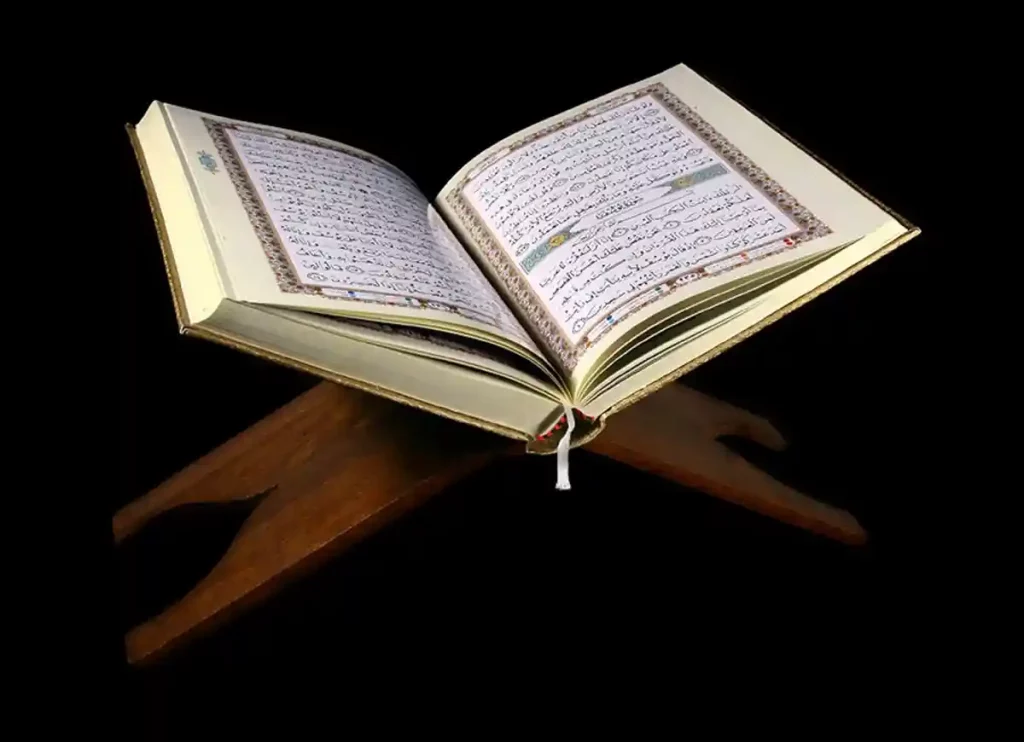
Best Quran Recitation – The lovely month of Ramadan may be a unique time to concentrate on a few more excellent works of the Quran and spend more significant time in worship.
The Benefits about Best Quran Recitation
The practice of listening to the best Quran recitations offers numerous benefits to individuals and communities alike. Here are some of the significant advantages:
- Spiritual Upliftment: The melodious and rhythmic tones of the best Quran recitations have a profound impact on the hearts and souls of listeners. They evoke a sense of tranquility, inner peace, and spiritual elevation. The recitations serve as a powerful means of connecting with the divine and deepening one’s relationship with God.
- Emotional Healing and Stress Relief: The soothing nature of the best Quran recitations has a therapeutic effect on individuals. It helps alleviate stress, anxiety, and emotional burdens. The recitations offer a refuge, providing solace and comfort during difficult times, and aiding in emotional healing and resilience.
- Linguistic Appreciation: The Quran is written in classical Arabic, a language of eloquence and beauty. Listening to the best Quran recitations exposes listeners to the richness of the Arabic language and enhances their linguistic appreciation. It allows individuals to develop a deeper understanding of the linguistic nuances and literary excellence present in the Quranic verses.
- Intellectual Stimulation: The best Quran recitations invite contemplation and reflection. The profound meanings and wisdom contained in the verses challenge individuals intellectually and encourage critical thinking. It fosters a thirst for knowledge, leading to a deeper understanding of religious principles, ethical values, and moral teachings.
- Preservation of Tradition and Culture: The best Quran recitations serve as a means of preserving and promoting the cultural and artistic heritage of Islamic civilization. By listening to these recitations, individuals gain a deeper appreciation for the historical traditions and the artistry associated with Quranic recitation.
- Unity and Community Bonding: The best Quran recitations transcend cultural, linguistic, and geographical boundaries, uniting believers from diverse backgrounds. The shared experience of listening to the recitations fosters a sense of community and solidarity among Muslims worldwide, reinforcing the bonds of brotherhood and sisterhood.
- Educational Value: The best Quran recitations can be utilized as educational tools for individuals seeking to learn proper Quranic pronunciation, Tajweed rules, and recitation techniques. They provide valuable resources for students of the Quran, enabling them to improve their own recitation skills and deepen their understanding of the text.
- Inspiration for Worship: The best Quran recitations inspire individuals to engage in acts of worship, such as prayer, supplication, and remembrance of God. They serve as a source of motivation and encouragement, reminding believers of the significance and rewards of connecting with God through devotion and worship.
In conclusion, the practice of listening to the best Quran recitations brings numerous benefits, including spiritual upliftment, emotional healing, intellectual stimulation, and fostering unity within the community.
It offers a means of connecting with the divine, promoting cultural heritage, and inspiring individuals in their worship and pursuit of spiritual growth.
Click Here To Find Out : Quran French, The Quran: English Translation, Textual Criticism and Qur’an Manuscripts
Names:
- Al-Afasy, Mishary bin Rashid
- Al-Ajmi, Ahmad Ali
- Al-Ghamdi, Saad ibn Said
- Al-Kurdi, Raad Muhammad (New)
- Al-Mueaqly, Maher bin Hamad
- Al-Shatri, Abu Bakr
- Al-Shuraim, Saud Ibn Ibrahim Ibn Muhammad
- Al Sudais, Abdul Rahman
- Sobhi, Islam
- Ulfah, Hajjah Maria
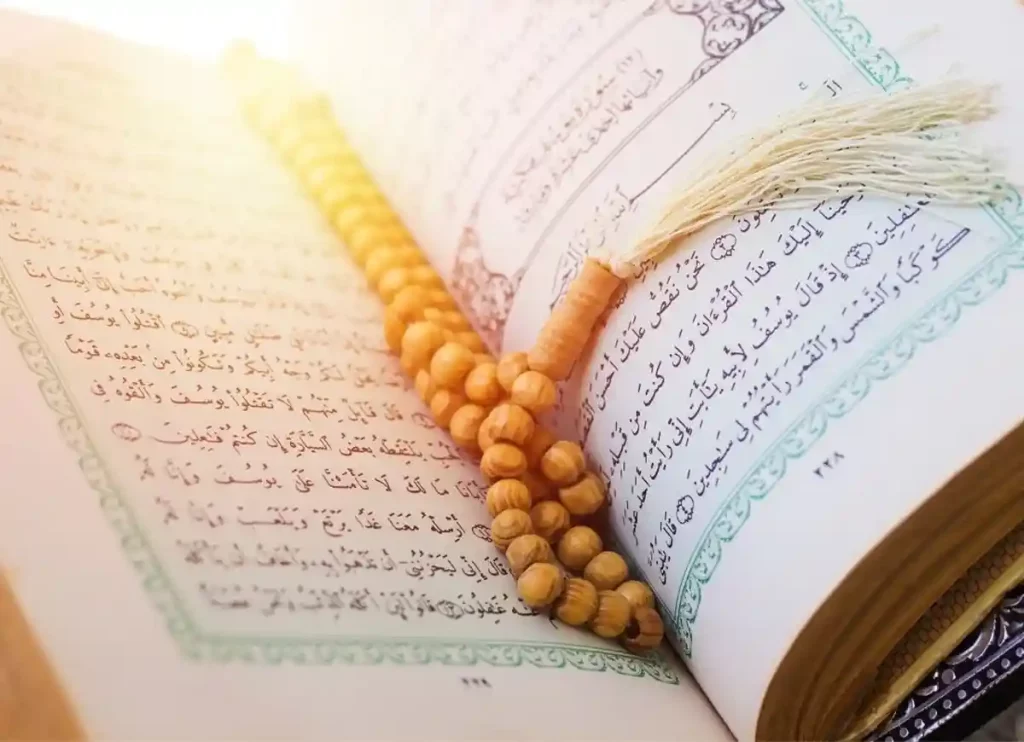
Sheikh Noreen Muhammad SadiqA Sudanese Quran reciter who was tragically killed in a vehicle twist of fate in 2020, his recitations of the Quran are among the most memorable and delightful these days. He was loved no longer just using Muslims throughout East Africa; however, across a lot of the Muslim world, his recitations may also give him benefits even after his passing.
Omar Hisham Al Arabi
Known for his unique fashion of reciting the Quran, many have praised Omar Hisham for his heartful and beautiful recitations of the Holy Quran. However, one of his maximum-listened-to recitations of Surah Ar-Rahman is powerfully particular – and is a pleasant manner of listening to the holy phrases of Allah.
Abdul Rahman Ibn Abdul Aziz Al Sudais
One of the maximum renowned and well-known Quran reciters, Sheikh Abdul Rahman Ibn Abdul Aziz Al Sudais, is likewise one of the nine imams of the Grand Mosque Masjd al-Haram in Mecca, as well as the President of the General Presidency for the Affairs of the Two Holy Mosques.
Mishary Rashid Alafasy
Originally from Kuwait, Sheikh Mishary Rashid Alafasy is understood as not most effective for his Quran recitations but for his nasheeds appropriately. Another famous and traditional Quran reciter, his voice remains one of the most recognized throughout the Muslim international.
Abdel Basit Abdel Samad
Regarded as one of the best Quran reciters the sector has seen, Abdel Basit Abdel Samad is an Egyptian reciter born in 1927. His recitation is considered traditional and is a tribute to the electricity of Quranic recitations in bringing together generations of Muslims.
Click Here To Find Out : Online Quran Teacher For Kids and Color Coded Quran , Can Muslim Men Wear Gold?

Questions & Answers about Quran Recitation
Q: What is Quran recitation?
A: Quran recitation refers to the oral rendition or reading of the verses of the Quran, the holy book of Islam. It involves the proper pronunciation, intonation, and rhythm of the Arabic text.
Q: Why is Quran recitation important in Islam?
A: Quran recitation is highly valued in Islam for several reasons. It is considered a means of connecting with the divine, as Muslims believe that the Quran is the literal word of God. Reciting the Quran with proper Tajweed (rules of pronunciation) is seen as a way to honor and preserve the purity of the scripture. Additionally, Quran recitation holds significant spiritual, emotional, and educational benefits for individuals and the community.
Q: Who can recite the Quran?
A: In Islam, anyone who has learned to recite the Quran properly and has a sound understanding of Tajweed can recite the Quran. While professional reciters and scholars are highly skilled in Quranic recitation, individuals of any age and background can engage in the recitation for personal or communal purposes.
Q: What are the different styles or schools of Quran recitation?
A: There are several well-known styles or schools of Quran recitation, known as “Qira’at.” These include but are not limited to Qira’at Hafs and Qira’at Warsh. Each school has its own distinct rules and pronunciation variations, but all of them are considered valid ways to recite the Quran.
Q: How is Quran recitation taught and learned?
A: Quran recitation is traditionally taught through a process of oral transmission from a qualified teacher to a student. Students learn the correct pronunciation, intonation, and Tajweed rules through careful observation, repetition, and practice. In recent times, online platforms, books, and multimedia resources have also made Quran recitation accessible for self-learning.
Q: Can non-Arabic speakers recite the Quran?
A: Yes, non-Arabic speakers can recite the Quran. While the original Quran is in Arabic, translations are available in many languages, allowing individuals to understand the meaning of the verses. It is recommended, however, to learn the basic rules of Tajweed and pronunciation to recite the Quran with accuracy and respect.
Q: Are there competitions for Quran recitation?
A: Yes, Quran recitation competitions are common in many Muslim-majority countries and communities worldwide. These competitions showcase the skills and mastery of reciters, and participants are often judged on factors such as accuracy, Tajweed, voice modulation, and overall performance. Such competitions serve to promote and honor the art of Quranic recitation.
Q: Can Quran recitation be done for personal reflection and spirituality?
A: Absolutely. Quran recitation is a deeply personal and spiritual practice for many Muslims. It is often performed as a form of devotion and reflection, allowing individuals to seek solace, guidance, and a deeper connection with God. Reciting the Quran with sincerity and contemplation can be a means of self-reflection, finding peace, and drawing closer to the teachings of Islam.
Q: Is there a specific time or place for Quran recitation?
A: Quran recitation can be performed at any time and in any suitable place. Muslims recite the Quran during daily prayers, in congregational gatherings, at home, or even individually. Some individuals allocate specific times, such as after sunrise or before bedtime, for personal Quran recitation and reflection. The focus is on creating a serene and conducive environment to engage with the words of the Quran.
Suggested Read: wbw quran, houseofquran, all surah in quran, quran list of surahs, how many chapters are in the quran, quran with urdu translation pdf, the chapters of the qur an, surah fatiha english translation pdf


